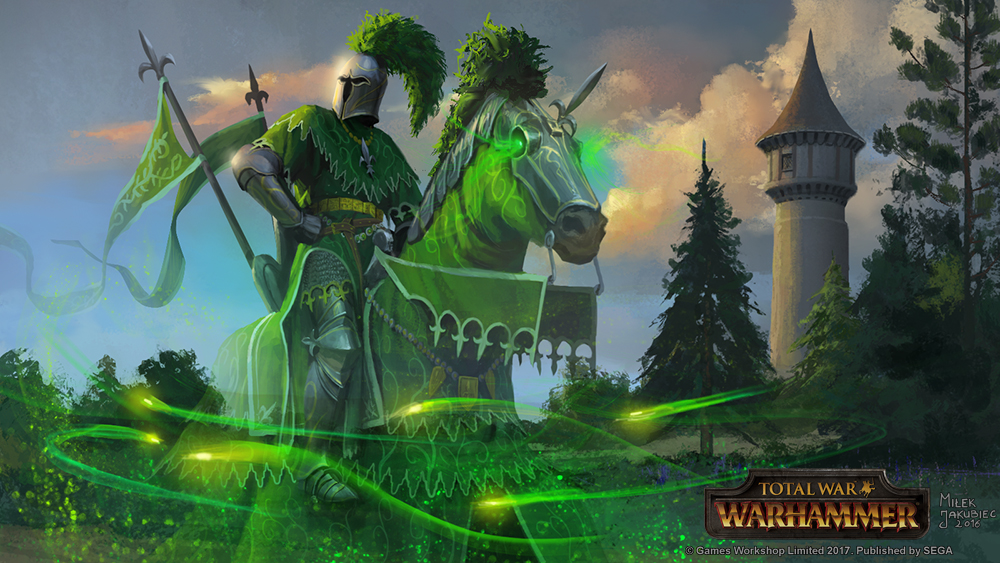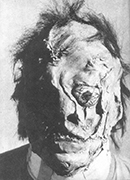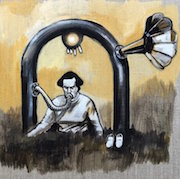|
Welcome goonlings to the Awful Book of the Month! In this thread, we choose one work of Resources: Project Gutenberg - http://www.gutenberg.org - A database of over 17000 books available online. If you can suggest books from here, that'd be the best. SparkNotes - http://www.sparknotes.com/ - A very helpful Cliffnotes-esque site, but much better, in my opinion. If you happen to come in late and need to catch-up, you can get great character/chapter/plot summaries here.  For recommendations on future material, suggestions on how to improve the club, or just a general rant, feel free to PM me. For recommendations on future material, suggestions on how to improve the club, or just a general rant, feel free to PM me.  Past Books of the Month [for BOTM before 2014, refer to archives] 2014: January: Ursula K. LeGuin - The Left Hand of Darkness February: Mikhail Bulgalov - Master & Margarita March: Richard P. Feynman -- Surely You're Joking, Mr. Feynman! April: James Joyce -- Dubliners May: Gabriel Garcia Marquez -- 100 Years of Solitude June: Howard Zinn -- A People's History of the United States July: Mary Renault -- The Last of the Wine August: Barbara Tuchtman -- The Guns of August September: Jane Austen -- Pride and Prejudice October: Roger Zelazny -- A Night in the Lonesome October November: John Gardner -- Grendel December: Christopher Moore -- The Stupidest Angel 2015: January: Italo Calvino -- Invisible Cities February: Karl Ove Knausgaard -- My Struggle: Book 1. March: Knut Hamsun -- Hunger April: Liu Cixin -- 三体 ( The Three-Body Problem) May: John Steinbeck -- Cannery Row June: Truman Capote -- In Cold Blood (Hiatus) August: Ta-Nehisi Coates -- Between the World and Me September: Wilkie Collins -- The Moonstone October:Seth Dickinson -- The Traitor Baru Cormorant November:Svetlana Alexievich -- Voices from Chernobyl December: Michael Chabon -- Gentlemen of the Road 2016: January: Three Men in a Boat (To say nothing of the Dog!) by Jerome K. Jerome February:The March Up Country (The Anabasis) of Xenophon March: The Name of the Rose by Umberto Eco April: Plain Tales from the Hills by Rudyard Kipling May: Temple of the Golden Pavilion by Yukio Mishima June:The Vegetarian by Han Kang July:Lud-in-the-Mist by Hope Mirrlees August: Pale Fire by Vladimir Nabokov September:Siddhartha by Herman Hesse October:Right Ho, Jeeves by P.G. Wodehouse November:Kitchen Confidential by Anthony Bourdain December: It Can't Happen Here by Sinclair Lewis 2017: January: Mother Night by Kurt Vonnegut February: The Plague by Albert Camus March: The Dispossessed by Ursula K. LeGuin April: The Conference of the Birds (مقامات الطیور) by Farid ud-Din Attar May: I, Claudius by Robert Graves June: Salt: A World History by Mark Kurlansky July: Ficcionies by Jorge Luis Borges August: My Life and Hard Times by James Thurber September: The Peregrine by J.A. Baker Blackwater Vol. I: The Flood by Michael McDowell Aquarium by David Vann Current: Sir Gawaine and the Green Knight [Author Unknown] https://youtu.be/BVnu-X3SK_Q?t=66    Book available here: Tolkien's Translation Tolkien's Critical Edition of the Middle English Text Simon Armitage facing-page alliterative verse translation Free Teaching Edition version based off translation by John Gardner (author of Grendel) (makes some cuts to the text): https://www.northallegheny.org/cms/lib4/PA01001119/Centricity/Domain/1312/sir%20gawain%20text-0.pdf http://ouallinator.com/blog/wp-content/uploads/2016/09/Sir-Gawain-Gardner-Translation.pdf Alternate verse translation by John Ridland: http://www.spdbooks.org/Content/Site106/FilesSamples/9781927409756.pdf additional free online versions including Middle English text: http://www.luminarium.org/medlit/gawaintx.htm (Tolkien critical ME text here: https://quod.lib.umich.edu/cgi/t/text/text-idx?c=cme;idno=Gawain ) Prose translation : http://www.yorku.ca/inpar/sggk_neilson.pdf About the book: quote:It describes how Sir Gawain, a knight of King Arthur's Round Table, accepts a challenge from a mysterious "Green Knight" who challenges any knight to strike him with his axe if he will take a return blow in a year and a day. Gawain accepts and beheads him with his blow, at which the Green Knight stands up, picks up his head, and reminds Gawain of the appointed time. https://en.wikipedia.org/wiki/Sir_Gawain_and_the_Green_Knight This isn't your standard King Arthur story like you're used to. I went over this in more detail in my King Arthur Megathread a few years ago, but the Arthur legends can be divided into two "cycles": the original group of Celtic myths, and then the later French romances. Most of the stuff you're familiar with as "King Arthur" stories -- the Sword in the Stone, the Holy Grail, Sir Lancelot, Galahad, etc. etc. etc. -- all come from the later French romances, mostly written in the 12th century, and weren't part of the original Celtic stories of Arthur. Gawaine is older, Celtic, original. Sir Gawaine and the Green Knight was probably written somewhere around 1400 -- roughly contemporaneously with Chaucer -- and probably by someone who was at least somewhat familiar with the French "cycle", but it's much more strongly derived from the Celtic tradition; Gawaine is the protagonist, not Lancelot; the Beheading Game a more primal, wild, Gaelic magic more terrifying than anything you'll find in the French legends. This is why you won't find the story of Sir Gawaine and the Green Knight in most standard editions of "King Arthur Stories"; it isn't part of the French tradition that Malory synthesized in his Morte D'Arthur, and we only know it from one single manuscript (though various versions of similar stories can be traced back hundreds of years in the Celtic sources). There is one downside: unlike Chaucer's works, which are generally readable today because our modern English is largely derived from Chaucer's London dialect, the Gawaine poet wrote in a more rural dialect that can be impenetrable to modern readers. So, lots of translations linked above. Compare and contrast, or brave the original if you dare. quote:Sir Gawain and the Green Knight is the finest representative of a great cycle of verse romances devoted wholly or principally to the adventures of Gawain. Of these there still survive in English a dozen or so; in French—the tongue in which romance most flourished—seven or eight more; and these, of course, are but a fraction of what must once have existed. No other knight of the Round Table occupies anything like so important a place as Gawain in the literature of the middle ages. He is the first mentioned of Arthur's knights, for about 1125, ten years before Geoffrey of Monmouth dazzled the world with his revelation of King Arthur, William of Malmesbury in his Chronicle of the Kings of England had told of the discovery of Gawain's tomb in Ross, Wales, and had described him as Arthur's nephew and worthy second. In all the early romances Gawain is peerless for utter courage and courtesy. Where other knights quailed, Gawain was serene; where other champions were beaten, Gawain won; and where no resolution, strength, or skill could avail, Gawain succeeded by his kindness, his virtue, and his charming speech. quote:Naturally, to the trained medievalist the poem is perfectly readable in its original form; no translation necessary. And even for the non-specialist, certain lines, such as "Bot Arthure wolde not ete til al were served", present little problem, especially when placed within the context of the narrative. Conversely, lines such as "Forthi, iwysse, bi zowre wylle, wende me bihoues" are incomprehensible to the general reader. But it is the lines that fall somewhere between those extremes - the majority of lines, in fact - which fascinate the most. They seem to make sense, though not quite. To the untrained eye, it is as if the poem is lying beneath a thin coat of ice, tantalisingly near yet frustratingly blurred. https://www.theguardian.com/books/2006/dec/16/poetry.simonarmitage About the Author quote:We know a good deal about Chaucer considering our distance from him in time, but about the Gawain-poet we know virtually nothing. For some scholars it is not even absolutely certain that the five poems we commonly ascribe to him are all his.' More important, whereas we read and enjoy Chaucer's poetry, much of the Gawainpoet's work, despite its excellence, is still hard to appreciate as literature. One reason for this is the difficulty we have with his language-a difficulty which inhibits not only reading but also translation. We read Chaucer in the original with relative ease, for the London dialect in which he wrote evolved in time into modern English; but the Gawain-poet is accessible only to specialists, and not fully accessible even to them, for his northwest Midlands tongue, never adopted in linguistically influential cities, has remained the curious, runish language it probably was to the average Londoner of the poet's own time. The dialect survives, drastically altered, here and there in rural England; in America, traces of it appear among backwoods or mountain people-in rural Missouri, for example, where the expression "I hope" can still mean "I understand, I believe." quote:Part of our trouble is the temperament of the man. He knows and uses the technical language of hunting, hawking, cooking, chess, and the special terms of the furrier, the architect, the musician, the lawyer, the courtly lover, the priest; he knows the names of the parts of a shield, the adornments of a horse, the zones of a knight's bejeweled helmet; he knows too the names of the parts of a ship, the parts of a coffin, the accouterments of farming; knows the Bible and its commentary (probably even commentary in Hebrew), the chronicles, old legends, the ecclesiastical traditions of London. His knowledge rivals that of Chaucer, but it is in some respects knowledge of a very different kind. Chaucer's technical language comes mainly from books-on astrology, on alchemy, on medicine, and so forth. The Gawain-poet's technical language seems to come less from books than from medieval occupations. quote:We know next to nothing about the author of the poem that has come to be called Sir Gawain and the Green Knight. It was probably written around 1400. In the early 17th century the manuscript was recorded as belonging to a Yorkshireman, Henry Saville of Bank. It was later acquired by Sir Robert Cotton, whose collection also included the Lindisfarne Gospels and the only surviving manuscript of Beowulf. The poem then lay dormant for over 200 years, not coming to light until Queen Victoria was on the throne, thus leapfrogging the attentions of some of our greatest writers and critics. The manuscript, a small, unprepossessing thing, would fit comfortably into an average-size hand. Just as it fitted comfortably into my hand, eventually, when a contact at the library took pity on me and invited me into that part of the building which operates under conditions of high security and controlled humidity. Now referred to as Cotton Nero A.x., not only is it a precious possession, it is considered one of the finest surviving examples of Middle English poetry. https://www.theguardian.com/books/2006/dec/16/poetry.simonarmitage Themes Sparknotes might be helpful for this one: http://www.sparknotes.com/lit/gawain/ Pacing Read as thou wilt is the whole of the law. Please bookmark the thread to encourage discussion. I encourage people to read whatever translations they find and compare notes in the thread. I plan on making some more detailed critical posts as we get our teeth into the poem, but if others want to tackle such, please do so and save me the work! References and Further Reading As mentioned above, for general background on Arthuriana (a suprisingly complex field!) see my earlier King Arthur megathread: https://forums.somethingawful.com/showthread.php?threadid=3617881 Final Note: Thanks, and I hope everyone enjoys the book! Hieronymous Alloy fucked around with this message at 02:01 on Dec 5, 2017 |
|
|
|
|

|
| # ? Apr 25, 2024 17:15 |
|
Guide to reading middle english: https://faculty.franklin.uga.edu/ctcamp/content/guide-reading-middle-english quote:King Arthur lay at Camelot over Christmas . .. .
|
|
|
|
|
Sweet, I think I'll be going with the Tolkien translation.
|
|
|
|
The Armitage translation is really really good. I've also read the Burton Raffels (?) translation which is not as good, but has a really fantastic introductory polemic against every other translator.
|
|
|
|
Other than the specifically poetic side of the poem (which is amazing but I probably can't offer much insight beyond what you would get in a half decent translators introduction) I don't have anything to say until people have had a chance to finish the thing. Rest assured it's amazing and it gets better the more you think about it. It's better than Chaucer but don't tell anyone I said that
|
|
|
|
Here's a clip of a reading of the beheading in Arthur's hall, translated above, in the original west midlands dialect: https://www.youtube.com/watch?v=0ObooLYEqSU I strongly recommend listening to this so you can get the original sound of the poem into your ear. Here's a recording of a reading of the original Middle English with a scrolling translation. It just covers the opening "This all connects up with Aeneas, really" tradition: https://www.youtube.com/watch?v=nl4KYZ9JrUw Forty minute BBC documentary: https://www.youtube.com/watch?v=-nAd6fffVvs&t=4s Another reading from later in the poem: https://www.youtube.com/watch?v=ax6sXDxhc4s Simon Armitage sixty-minute BBC documentary: https://www.youtube.com/watch?v=74glI1lg1CQ Hieronymous Alloy fucked around with this message at 14:24 on Dec 4, 2017 |
|
|
|
|
I had a collection of illustrated King Arthur stories as a kid and the story of the green knight always scared me. I've downloaded the teacher's version and after I've familiarized myself with the narrative using that translation I'll use those great aids to try the rural middle English of the original. This is exciting, I only just found the thread and, as someone who read both Pride and Prejudice and What Jane Austen knew and Charles Dickens ate on his own a few years ago, the archive of Pride and Prejudice is amazing .
|
|
|
Jack B Nimble posted:I had a collection of illustrated King Arthur stories as a kid and the story of the green knight always scared me. I've downloaded the teacher's version and after I've familiarized myself with the narrative using that translation I'll use those great aids to try the rural middle English of the original. Thanks! I put a lot of work into that one and I'm still a little mad at myself for not finishing it -- I got to the part where the story takes off and just kept reading. Still, I figure that there's enough in that thread to get people "over the hump" to where they can read it on their own. CestMoi posted:Other than the specifically poetic side of the poem (which is amazing but I probably can't offer much insight beyond what you would get in a half decent translators introduction) I don't have anything to say until people have had a chance to finish the thing. Rest assured it's amazing and it gets better the more you think about it. It's better than Chaucer but don't tell anyone I said that I just went by the Barnes & Noble to look at physical copies and compare the translations they had on hand. Surprisingly they didn't have Tolkien's, but of the ones they did have, the Simon Armitage one really stood out, to the point that I ended up buying it -- it's a facing-page translation, which I didn't have, and the sound of Armitage's translation seems to be fairly in ken with the original. Plus it's got a jacket quote by Seamus Heaney.
|
|
|
|
|
theres no e in gawain you idiot. you loving imbecile tolkien's translation is, surprisingly, not very good. marie borrof's is more faithful to the original than armitage's (and the one that undergraduates usually read in class), but armitage's is more readable and 'poetic'. i recommend his. also, the US printings of armitage's text have the Middle English in facing-page e: note that tolkien's translation is not very good; his edition is very good. this one, however, is at least as good. it's also cheaper, and has the other four* poems believed to be by the same author. i'd get that edition if you're going to take a hack at the ME (which I strongly recommend; it's not easy but it's extremely rewarding and vastly superior experience than the translation) *Pearl (a sad and weird and haunting dream-vision about the narrator's dead daughter[?]), Patience (a retelling of the story of Jonas), and Cleanness (mostly about marriage). it lacks St. Erkenwald, which most scholars think is probably by the same author. that involves the titular saint bringing a pagan back from the dead. chernobyl kinsman fucked around with this message at 04:15 on Dec 5, 2017 |
|
|
|
|
the entire poem is a circumcision metaphor the green knight arrives on december 31st. a year and a day later, on january 1st, gawain's neck is nicked by the green knight's axe, a moment that signals his entry into manhood and permanently marks him. january 1st, eight days after christmas, is the feast of the circumcision of christ, as any medieval reader would have known. the entire poem is a circumcision metaphor, and it ends with gawain being circumcised.
|
|
|
|
|
He's Gawaine in Howard Pyle and that's where I met him Also if I called him Galvagin or Gwalchmei it would just be confusing
|
|
|
|
Hieronymous Alloy posted:He's Gawaine in Howard Pyle and that's where I met him i haven't read pyle's arthur but i love the hell out of his robin hood. i should get on that
|
|
|
|
|
i can make an effort post about yogh and ash and thorn etc etc if that would be useful (unless it's in the op somewhere)
|
|
|
|
Tree Goat posted:i can make an effort post about yogh and ash and thorn etc etc if that would be useful (unless it's in the op somewhere) Yeah boi
|
|
|
|
it has been ages since my last linguistics course and i was pretty bad at phonology/paleography even when it wasn't, so feel free to correct my stupid brain. echoing the op, the way the poem sounds is important and cool and also mostly lost in the translations. so it is worth your while to try to look over the poem in the original. however, even if you've cut your teeth with chaucer, it's gonna be tough. but it's very cool to at least get the rhythm and the phonology of the poems, and you can always consult the facing pages or what have you for the meaning. if you do so, you will have noticed some strange characters. a lot of these are derived from the old runic alphabet, and mostly didn't make it into modern english. they have survived in modern icelandic, although with some key phonetic differences, but i don't know and don't care to learn. Ž (think "th") the first is my boy "thorn", Ž (uppercase) or ž (lowercase). if those show up as squares to you, then imagine something that looks like a "p" but with the tail going up further. it has been replaced in modern english by the "th" digraph. it is pronounced in many of the same ways that you'd pronounce "th" in modern english words, for instance as the th in "father" or, well, the th in "the." in old english you'd sometimes see an eth ("š") in places where you'd expect a "ž," and vice versa. in many scripts, thorn looked a lot like a script "y" and, with print culture picking up speed as ž's usage was declining, you'd often see a "y" type block used in place of a "ž." this means that "ye olde shoppe" should really be pronounced "the old shop," the same as in modern english. this is something you can "well, actually" about at a renaissance fair, if you're the kind of fundamentally broken person who goes to renaissance fairs and goes on about historical accuracy at them. some examples from the poem: "žis" -> "this" "žat" -> "that" "ožer" -> "other" Ȝ (think "gh") next up is "yogh", Ȝ,ȝ. It looks like a radical looking "3", or a "z" with a tail on it. It has been mostly replaced in modern english by the "gh" digraph, but with a lot of exceptions. a lot of consonants were denoted by Ȝ, so that weirdness is reflected in the dramatically different ways "gh" sounds in "though" and "rough" and "night." It can also sound like a "j" or "y," so be careful. For instance, in "If ȝe wyl lysten," "ȝe" is the 2nd person plural pronoun "ye," as in "hear ye, hear ye." examples: "knyȝtez" -> "knights" "hyȝest" -> "highest" "Ȝer" -> "year" Ę (think "e") last up is "ash", Ę, ę. This is in modern english still I guess, so I won't spend too much time on it. nowadays, it's normally written with an ae digraph instead of a ligature, or the spellings have been modernized to remove it entirely (like "ęther" -> "ether"), especially in American English (US "encyclopedia" vs UK "encyclopędia"). Don't freak out when you see it and over-pronounce the "a": in Phillip Pullman's Dark Materials, the "dęmons" are pronounced like "demons," not "day-mons." Let's put this to the test with a few lines from the first part of the poem, just the earliest ones I could find with both Ž and Ȝ in them that don't have too much other word weirdness going on. I couldn't actually find any ashes in the online version of the text, but I could've sworn there are some. Anyway: quote:Hit watz Ennias že athel, and his highe kynde, I'd personally modernize to something like: quote:It was Aeneas the noble*, and his high kind, Where: "athel" is from the Old English "ęšele," meaning noble (as in your pal and mine, Ęthelred the unready, a compound word meaning "noble [ęšele] council [ręd]." "sižen" denotes elapsed time, close to "soon" i'd say. "subsequently" or "afterwards" also work. "depreced" would gloss to "subdued" rather than the literal "depressed" here, since the connotations have shifted a bit.
|
|
|
Tree Goat posted:i can make an effort post about yogh and ash and thorn etc etc if that would be useful (unless it's in the op somewhere) pretty please edit: oh wait you did awesome
|
|
|
|
|
Gonna get a mythical here, incoming text dump (feel free to ignore!) The Golden Bough, 1922 Edition, by Sir James Frazier, Chapter XXVIII: The Killing of the Tree-Spirit quote:
http://www.bartleby.com/196/67.html Frazier is, of course, largely discredited; but it's hard not to gloss this section onto Gawain and suspect an underlying pagan myth of a yearly-beheaded sacrificial King; elsewhere in Frazier there are examples where each King is slain by his successor, who then reigns for a term, and is then slain in turn by his successor. Just as in Beowulf, we've got the tension here between the then-modern Christian narrative, laid atop and reworking the underlying pagan mythology. Arthur himself -- even in the very earliest sources -- is clearly and explicitly Christian, but the challenger here, the Green Knight, is a figure from celtic, pagan folklore. So, thing to think about : the King Arthur stories fall into a few "standard formats" and tropes. A petitioner comes to Arthur's hall, asking help, and a knight is sent out. A rebellious king refuses Arthur's reign as High King of Britain and must be subdued. In very early stories, Arthur as a Christian has to subdue various pagans and non-Christian invaders. Here, all that's sortof combined and subverted. The Green Knight comes into Arthur's hall, at Christmas, a holy Christian festival -- but instead of a Christian seeking aid, he's a creature of pagan magic, bearing pagan symbols (the holly bough). And this pagan challenges Arthur! He's challenging Arthur's right to rule, and he's challenging Christianity itself! Plus, if we buy into a Frazier-type interpretation of the underlying myth, the challenge is a trap: if Arthur accepts the challenge directly, then he's not ruling under Christ, he's only a pagan king for a year, and in a year he'll have to go submit to the next challenger. So Gawain heroically steps in . . . Hieronymous Alloy fucked around with this message at 15:48 on Dec 5, 2017 |
|
|
|
|
Yo, this is one of my favorite books! I've read the Armitage and the Tolkien translations. Tolkien's is more difficult to read, since Armitage tries very hard to retain the meter and alliterative qualities of the original, but from what I understand Tolkien's language is more accurate to the poem's meaning and cultural value. I can't honestly say which I prefer, but I'm glad I read Armitage's version in high school and came back to Tolkien's in college. I hadn't realized John Gardner had done a translation, so maybe I'll take the chance to read his.
|
|
|
|
I have a copy of this - http://www.imdb.com/title/tt4261304/ - floating around on DVD somewhere if anyone is interested.
|
|
|
|
some notes on the first few stanzas, if anyone is interested: the first stanza is setting the poem in a broader historical context as the author and his readers understood it. the best medieval scholarship taught that the Britons (the Welsh) were descended from Brutus, a descendent of Aeneas who sailed west to settle Britain (hence its name, sort of). the bit about Aeneas being a traitor is also derived from medieval tradition, which held that he had betrayed Troy and helped to bring about its downfall. i'm not sure where that came from originally; certainly not the Aeneid. the third stanza places a heavy emphasis on youth - the new year is 'ȝep', or young, Arthur is 'childgered' (childlike), the court is described as being in its 'first age'. this is a specific moment in time situated within the broader cycle of the rise and fall of kingdoms which was introduced in the first stanza. it's a theme which is reinforced by the reader's foreknowledge: Arthur's kingdom, like troy, will grow old and fall; like troy, it will be brought low by treason. this cycle of death and rebirth has obvious seasonal resonances, too, since this is yuletide and the New Year. this also relates to the central motif of the Beheading Game, which is of course itself connected to the passing of seasons and lives. hopefully some of that made sense, it's late and i've had wine.
|
|
|
|
|
you fellows might also want to check out this site if you enjoy: http://d.lib.rochester.edu/teams/catalog it's a vast collection of middle English texts, with something of an Arthurian focus - recommend taking a look through 'Sir Gawain: Eleven Romances and Tales' for a couple of other versions of the Green Knight story, should also help develop an understanding of how Gawain typically works as a character. The Awyntyrs off Gawain, in that volume, is probably the most introspective piece in the genre that I've seen, also recommended. e: Hieronymous Alloy posted:So, thing to think about : the King Arthur stories fall into a few "standard formats" and tropes. A petitioner comes to Arthur's hall, asking help, and a knight is sent out. A rebellious king refuses Arthur's reign as High King of Britain and must be subdued. In very early stories, Arthur as a Christian has to subdue various pagans and non-Christian invaders. couple of points - worth considering a third major genre: the forest encounter. Typically, there's a mysterious meeting between Arthur/ a knight (there's dozens of Gawain ones in particular) and a somewhat unnatural figure - like the Green Knight, for instance. Subsequently, there'll be an adventure involving whatever's been encountered, and there'll usually be some suggestion of the magical. While 'liminal spaces' is something of an overused term, the forest is typically understood as such, the kind of place where one might reasonable encounter a monster, magical maiden or other mystery. Consider how Gawain ends up finding Bertilak's castle. Beyond that, I'd hardly call the encounter a subversion of genre expectations - I'd recommend checking out the book I mentioned above for a couple of other versions of the same (Gawain and the Grene Knight, Gawain and the Turk) VileLL fucked around with this message at 12:16 on Dec 7, 2017 |
|
|
VileLL posted:you fellows might also want to check out this site if you enjoy: oooooooh quote:e: Yeah, I left out forest encounter stories because Arthur's in his hall in this one, but yeah, especially if you read the Green Knight as a "Green Man" type figure, this is quite literally a forest encounter! And yeah "subversion" was probably too strong. I just meant that someone's coming into Arthur's hall as a challenger rather than as a supplicant. Hieronymous Alloy fucked around with this message at 14:15 on Dec 7, 2017 |
|
|
|
|
I think I have the Oxford classics translation buried somewhere.
|
|
|
|
I'm reading through the footnotes in Tolkien's critical edition and he throws shade left and right: Footnote to line 992: quote:Possibly, as Hulbert and Knott suggest [citation omitted], knyet should be read, as more likely than lord to give rise to the MS error kyng; but lord is more than thirty times applied to Bertilak, and alliteration rather than internal rhyme is normal in the wheel. That kyng is an error, and not a mysterious vestige of a mythological analogue, cannot be doubted in light of the poet's words everywhere else. So much for my golden bough king-of-the-year theory
|
|
|
|
Hieronymous Alloy posted:So much for my golden bough king-of-the-year theory the bough may be largely discredited but i dont think anyone really doubts that the Beheading Game is a vestige of an old celtic year king/fertility myth, anymore than anyone doubts that the Loathly Lady of Chaucer's Wife of Bath's Tale (and the Wedding of Sir Gawain and Dame Ragnelle/the Marriage of Sir Gawain, both of which are available on the METS website in the Gawain romances edition) is an Irish sovereignty goddess for that matter Guinevere is beyond a doubt an attenuated mythological figure. her name (Gwenhwyfar in Welsh) is cognate with the Irish Findabair, daughter of Ailil and Medb (Queen Mab), and means 'white ghost' Gawain himself probably contains some mythical elements as well; the bit about how his strength waxes with the rising sun until noon and then wanes (not attested in SGGK but widely mentioned elsewhere) likely points to some old solar hero attributes e: while I'm talking about sources, this is my favorite take on the question of the historical arthur. i'm slightly biased because i studied under this guy, but i think it's a brilliant read. its a JSTOR link but you should be able to read it online without institutional access if you make an account, otherwise i can email it to anyone who's interested chernobyl kinsman fucked around with this message at 19:53 on Dec 10, 2017 |
|
|
|
|
I feel incredibly late to this thread! It's the single best narrative poem in the English language. Better than Milton, Chaucer, Shakespeare, Pope, anyone. Everything about it, its knotted language, which fits with the gnarly old landscape it's evoking, its twisting, erotic, baffling story, its deconstruction of Gawain as a hero, its beautiful religious symbolism, I could lap this up. It's very serious in mood compared to Chaucer and a lot of other Middle English literature, especially romances of the time, but it makes up for it. I think I'm going to reread a fitt at a time in the original Middle English, it will be cool to see what I get out of it this go around. Can I talk a bit about Lud's Church and green? It's theorised that the 'green chapel' at the climax of the book in Fitt IV is this place.  What a picture of the place can't quite convey to you is that even in the depths of winter this place is really green. There are loads of different shades of green as you walk down, the moss and lichen kind of shimmers. It's spooky as hell, it feels alive. It's got that eldritch feeling. Green is interesting, and possibly deliberate. Every colour in the Middle Ages was usually associated with some kind of liturgical property, some kind of myth. Everything was God's signature on the Creation, and things were linked symbolically in often esoteric ways. But green is very indeterminate. It can be associated with bad things like envy (as it still is today) but also, obviously, good things like the bounty of nature. The greenness of the poem feels purposefully ambiguous and elusive. It's not the Green Man by the way. The illustrations in Cotton Nero A.x. are kinda bad compared to its contemporaries, but they illustrate that the Green Knight's greenness is different, it's darker and more golden (sorry for the unwieldy link). I'm not sure whether to read anything into why all the men in the illustrations look like Arthur, who looks like the dreamer in Pearl, which is in the same manuscript.
|
|
|
|
Is this a similar edition to the Simon Armitage facing page edition linked in the OP? Because it seems to be the version published within Canada and it might ship a little faster. Also the Kindle edition linked on that page is not the same thing at all. In the meantime, I've been attemping to read the linked ME versions, and really appreciate the notes you guys have been posting, because I never took any courses in Medieval English literature.
|
|
|
J_RBG posted:
The Simon Armitage documentary visits this place (but not in winter for some reason): https://www.youtube.com/watch?v=74glI1lg1CQ&t=3084s Stuporstar posted:Is this a similar edition to the Simon Armitage facing page edition linked in the OP? Because it seems to be the version published within Canada and it might ship a little faster. Also the Kindle edition linked on that page is not the same thing at all. Yeah, the Kindle edition short-circuits over to some random cheapo public domain translation that should be free anyway. I *think* this is the Kindle version of the Armitage translation : https://www.amazon.ca/Gawain-Green-...gawain+armitage . I found it by searching for "Simon Armitage" in the Kindle Store. This is the cover on the facing-page edition I got at the Barnes & Noble: 
Hieronymous Alloy fucked around with this message at 05:04 on Dec 11, 2017 |
|
|
|
|
weirdly the UK printing of the Armitage translation is not facing page, iirc
|
|
|
|
|
Gawaine was definitely the most memorable of the medieval literature I've read.
|
|
|
|
chernobyl kinsman posted:weirdly the UK printing of the Armitage translation is not facing page, iirc drat. That's exactly what I wanted to know. Thanks. I guess I'll be waiting for the US edition then. In the meantime, I'll keep at the ME versions online.
|
|
|
here they've digitzed the entirety of the manuscript in which SGGK survives. it starts on this page. it's worth a look to get an idea of a) the illustrations (illuminations) and b( how wildly differently the text is formatted in the manuscript vs. in modern printed editionsStuporstar posted:drat. That's exactly what I wanted to know. Thanks. I guess I'll be waiting for the US edition then. In the meantime, I'll keep at the ME versions online. try this, which is Tolkien's edition of the middle english with glosses for just about every problematic word. just click on each line number and it will expand to give the definitions. it's a little effort intensive, but still better (and more faithful) than jumping back and forth between a facing page translation, imo chernobyl kinsman fucked around with this message at 08:02 on Dec 11, 2017 |
|
|
|
|
chernobyl kinsman posted:here they've digitzed the entirety of the manuscript in which SGGK survives. it starts on this page. it's worth a look to get an idea of a) the illustrations (illuminations) and b( how wildly differently the text is formatted in the manuscript vs. in modern printed editions Very cool, thanks. Six stanzas in, and I'm just starting to get the hang of it. There's about a dozen words I keep getting caught on because I've not come across them before, but a lot of them I haven't needed the translation for, after getting used to the way they're spelled.
|
|
|
|
chernobyl kinsman posted:try this, which is Tolkien's edition of the middle english with glosses for just about every problematic word. just click on each line number and it will expand to give the definitions. it's a little effort intensive, but still better (and more faithful) than jumping back and forth between a facing page translation, imo Awe. Some. Link goes in bookmarks. I'm mainly reading the Tolkien translation but it's cool to look at the Middle English also -- don't have any experience with that at all, but I am Norwegian and did the usual brief coverage of Old Norse back in school, and there are more than a few similarities.
|
|
|
|
J_RBG posted:its deconstruction of Gawain as a hero, This is absolutely one of my favourite bits of the poem, and probably of just about any piece of literature I've read in the past couple of years. The irony at play with Gawain's betrayal of his own values for a belt that doesn't even work and the sheer shame he feels at that and then turning up back at the court and having everyone praise him for failing horribly as a knight and then taking the very mark of his failure and turning it into a nice thing that everyone just wears is wonderful.
|
|
|
|
Gawain is the most ironical hero and I bloody love him
|
|
|
Groke posted:I am Norwegian and did the usual brief coverage of Old Norse back in school, and there are more than a few similarities. yes! some of that is from shared derivations as germanic languages, but a fair portion is importation directly from old norse via contact - with the vikings, when they took over half of britain
|
|
|
|
|
I read some random translation of this ages ago, and it didn't really stick with me. Ordered the Armitage version and am excited to give this a serious read. Thanks everyone posting amazing contextual information in the thread, it's super helpful and interesting.
|
|
|
|
halfway through, it's a blast so far I'm very bad at understanding middle english so I mostly just read the translated armitage version, but you better believe I read every middle english 'wheel' section aloud it really is a beautiful poem
|
|
|
|

|
| # ? Apr 25, 2024 17:15 |
Meyers-Briggs Testicle posted:halfway through, it's a blast so far Tolkien's critical edition has a footnote about the "wheel" sections; from the name I thought the "wheel" was the main text block and the "bob" was the little blurb, but actually the wheel is the tiny blurb at the bottom and the bob is the line connecting the wheel to the text block. The wheel sections also appear to have been written after the main text -- nothing narrative happens in them, they're purely descriptive additions -- but before the poem was written down by the scribe of the surviving Norfolk manuscript. Went googling trying to find tolkien's exact quote for a copy/paste and found this blog entry: quote:Probably the most notable aspect of Gawain and the Green Knight is its poetic structure. It was written at the height of a period called the Alliterative Revival, which briefly brought alliterative verse back into vogue in parts of Europe. Alliterative verse is similar to rhyming verse except that it uses – you guessed it – alliteration instead of rhyming to form the primary structure of a work. Gawain and the Green Knight is an eccentric work because it combines a strong alliterative structure with a “bob and wheel” – a rhymed, four-line stanza (the “wheel”) with a very short line (the “bob”) connecting it to the previous stanza. https://offwhitestuff.wordpress.com/tag/bob-and-wheel/ I hadn't really thought about the use of heavy alliteration in the poem because in my head the line goes Beowulf --> Gawain, but of course there's a seven hundred year gap there. quote:The Alliterative Revival is a term adopted by academics to refer to the resurgence of poetry using the alliterative verse form in Middle English between c. 1350 and 1500. Alliterative verse was the traditional versification of Old English poetry; the last known alliterative poem known before the revival was Layamon's Brut, which dates from around 1190. https://en.wikipedia.org/wiki/Alliterative_Revival Hieronymous Alloy fucked around with this message at 17:48 on Dec 12, 2017 |
|
|
|





















